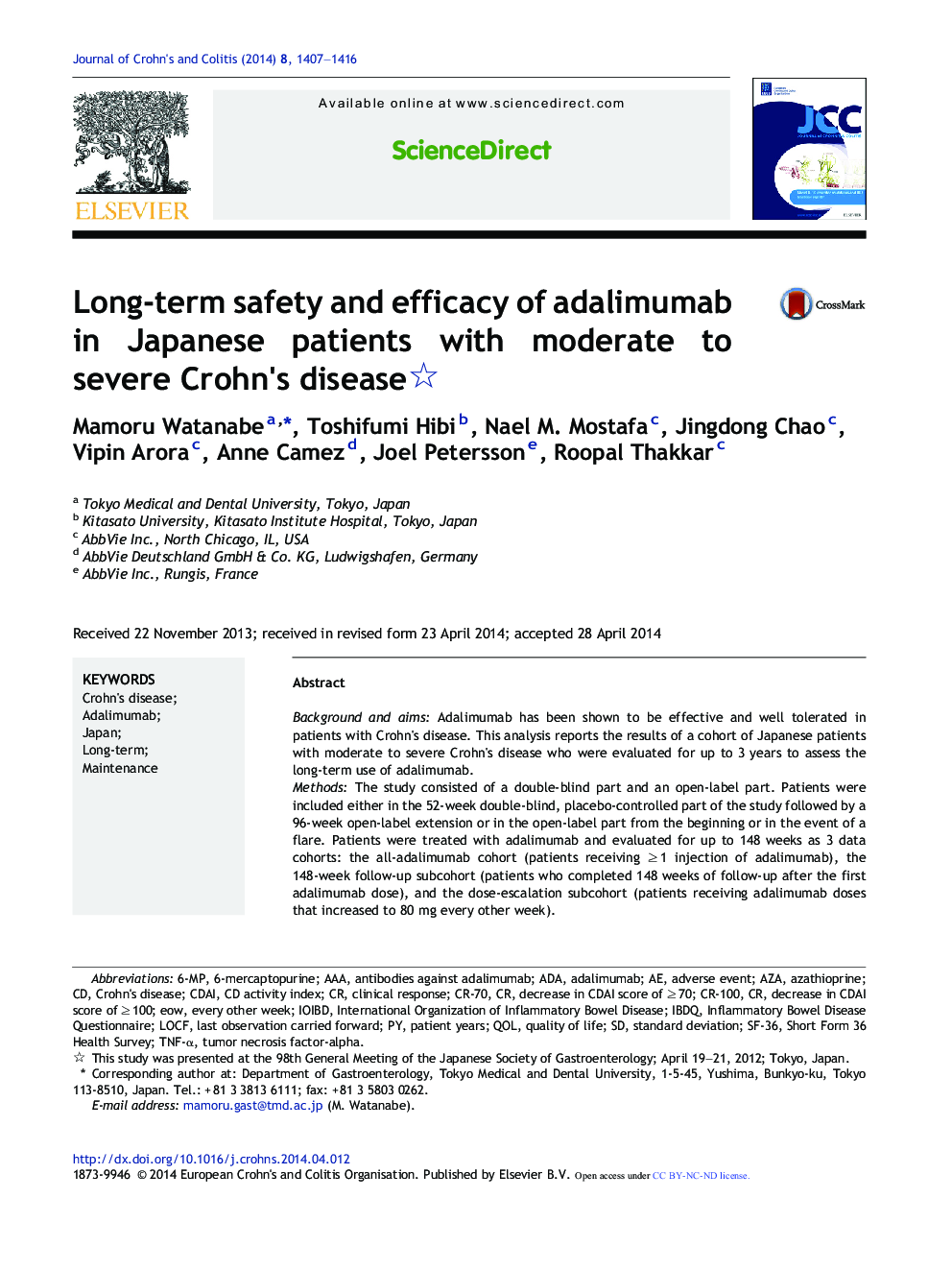| Article ID | Journal | Published Year | Pages | File Type |
|---|---|---|---|---|
| 6099228 | Journal of Crohn's and Colitis | 2014 | 10 Pages |
Background and aimsAdalimumab has been shown to be effective and well tolerated in patients with Crohn's disease. This analysis reports the results of a cohort of Japanese patients with moderate to severe Crohn's disease who were evaluated for up to 3 years to assess the long-term use of adalimumab.MethodsThe study consisted of a double-blind part and an open-label part. Patients were included either in the 52-week double-blind, placebo-controlled part of the study followed by a 96-week open-label extension or in the open-label part from the beginning or in the event of a flare. Patients were treated with adalimumab and evaluated for up to 148 weeks as 3 data cohorts: the all-adalimumab cohort (patients receiving â¥Â 1 injection of adalimumab), the 148-week follow-up subcohort (patients who completed 148 weeks of follow-up after the first adalimumab dose), and the dose-escalation subcohort (patients receiving adalimumab doses that increased to 80 mg every other week).ResultsIn the all-adalimumab cohort (n = 79), clinical remission rates were approximately 30% after 36 weeks of exposure to adalimumab and for the remainder of the study (35%, 33%, and 28% for weeks 48, 108, and 144, respectively). An improvement in quality of life was also maintained over the same period. In the dose-escalation subcohort (n = 40), the clinical remission rate was 75% (6/8) 48 weeks after dose escalation. Adalimumab was tolerated, and no deaths were reported.ConclusionsAdalimumab is effective for maintaining long-term clinical remission in Japanese patients with moderate to severe Crohn's disease (NCT00445432).
